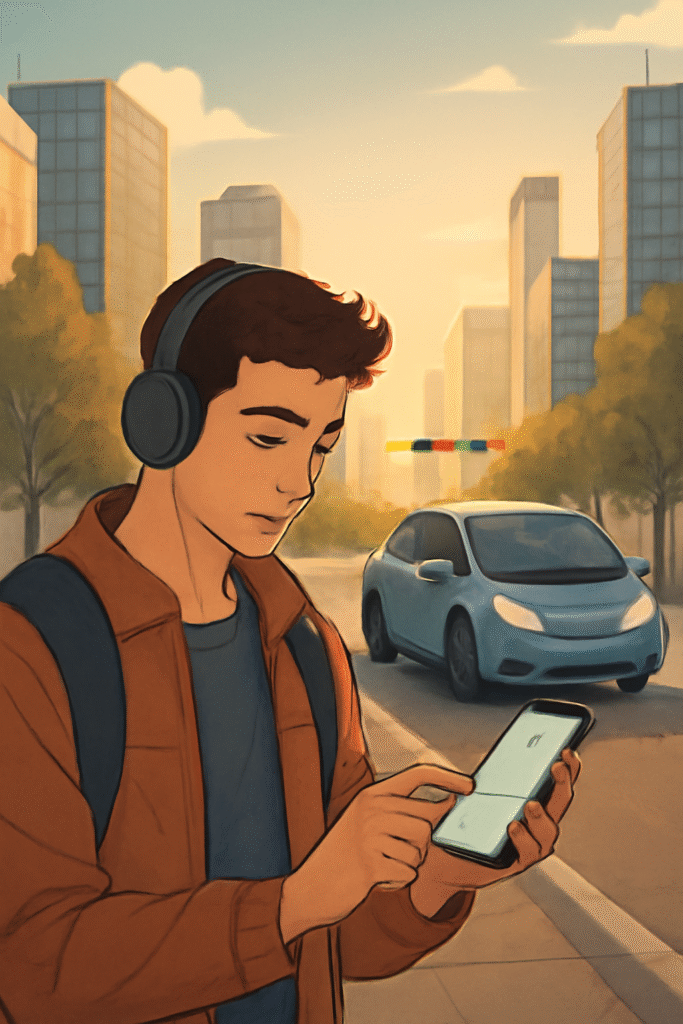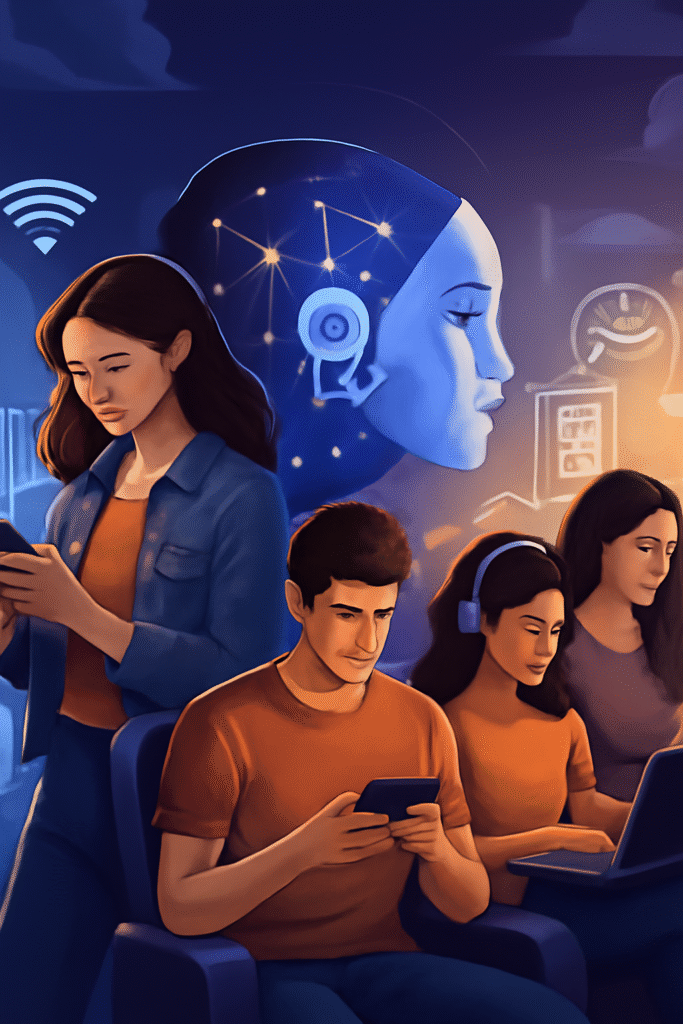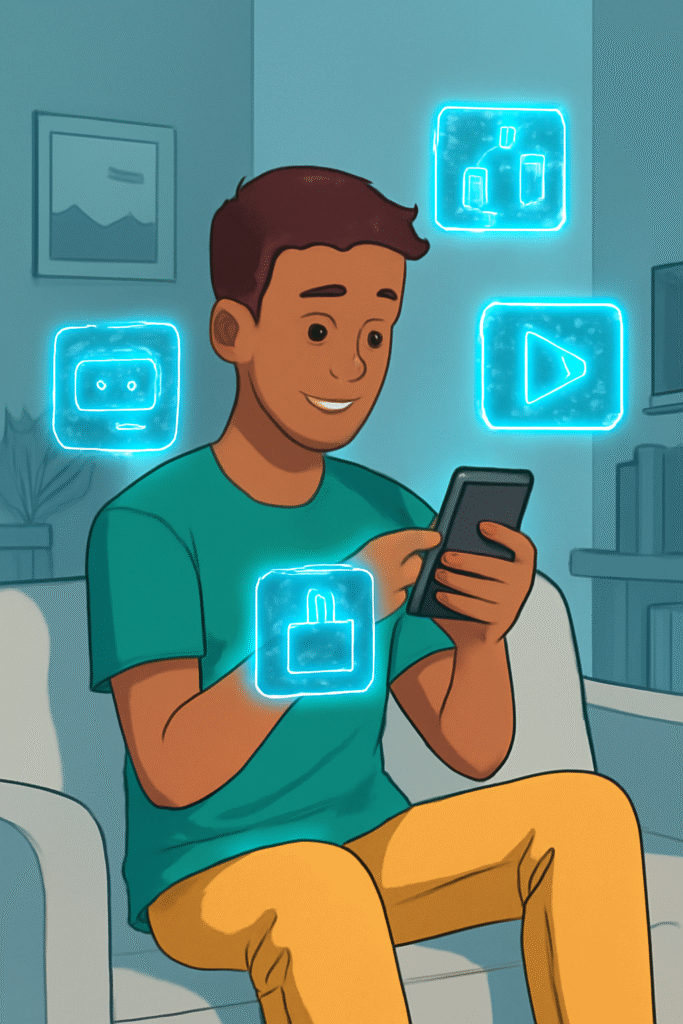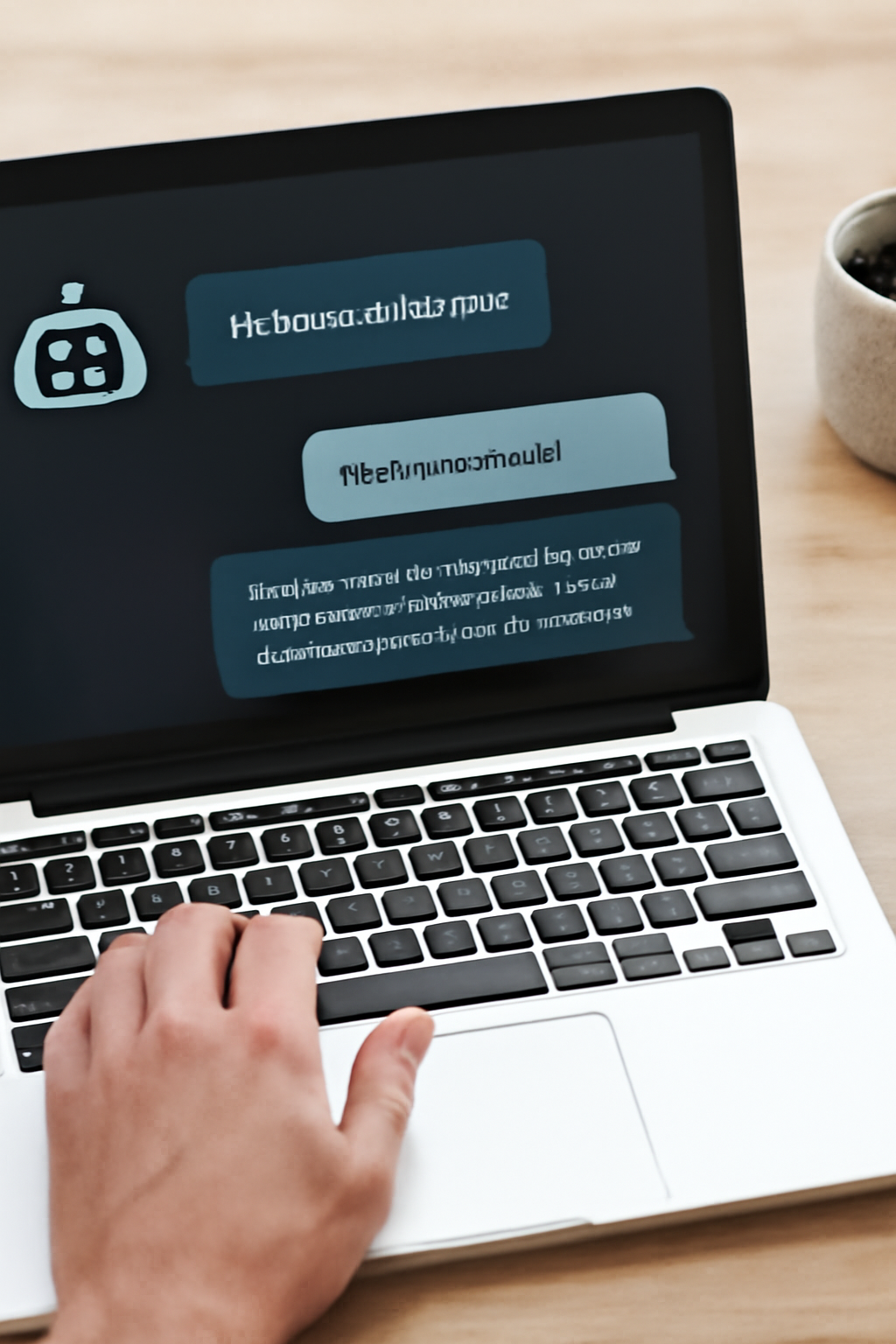Vamos explorar como a inteligência artificial está transformando a vida dos jovens em ambientes urbanos. Ela vem introduzindo conceitos inovadores, criando experiências digitais personalizadas, remodelando as relações interpessoais e apoiando iniciativas ambientais. Também vamos analisar os desafios relacionados à proteção da privacidade e à manutenção da autenticidade nas paisagens das cidades inteligentes do futuro.
Vida Digital e IA nos Centros Urbanos
Nas grandes regiões metropolitanas, circular entre edifícios contemporâneos ou utilizar dispositivos móveis para atividades rotineiras evidencia a importância da inteligência artificial no dia a dia. Aplicativos de transporte comparam rotas instantaneamente, analisando padrão de tráfego e alternativas mais ecológicas. Isso aprimora a experiência dos jovens urbanos, tornando a mobilidade mais eficiente, conectada e ambientalmente consciente.
Outro exemplo envolve as recomendações de entretenimento e atividades. Todas as manhãs, notícias, eventos e novidades aparecem previamente selecionados de acordo com preferências individuais. Essa influência da IA se estende a escolhas como sugestões de restaurantes, ofertas de compras online e experiências pela cidade alinhadas aos hábitos e interesses pessoais.

A IA cria experiências personalizadas
A personalização representa uma das contribuições mais empolgantes da inteligência artificial para a vida contemporânea. Plataformas de streaming recomendam músicas que combinam com o gosto do usuário, enquanto aplicativos de entrega sugerem pratos alinhados às preferências individuais. Decisões que antes exigiam tempo e esforço agora acontecem em segundos, usando dados e hábitos para preencher a rotina com experiências únicas.
Novas rotinas criam oportunidades
Assistentes digitais ajudam a lembrar compromissos, organizar listas e simplificar processos de trabalho. Ferramentas com IA potencializam tarefas criativas, como edição mais rápida de vídeos e imagens. Com isso, o smartphone se tornou um centro de experiências personalizadas, atendendo tanto ao entretenimento quanto às necessidades profissionais.
Inovação nos ambientes profissional e acadêmico
No trabalho, a inteligência artificial auxilia pessoas a manterem alto desempenho em contextos acelerados. Softwares organizam responsabilidades, analisam métricas de desempenho e apoiam decisões rápidas, tornando jovens profissionais mais competitivos no mercado.
Na educação, plataformas adaptativas ajustam conteúdos ao ritmo de cada estudante, aumentam a motivação e introduzem métodos de ensino inovadores. Ferramentas como Duolingo e Coursera adaptam lições e desafios conforme o progresso do aluno, ampliando o acesso à educação de qualidade nas áreas urbanas.
IA e redes sociais promovem novas amizades na era digital

As plataformas de redes sociais funcionam como grandes laboratórios de inteligência artificial. Algoritmos selecionam o conteúdo do feed, sugerem conexões e determinam a relevância de perfis. Isso ajuda a unir pessoas com interesses em comum, mas também pode limitar o contato com ideias diferentes e pontos de vista diversos.
Para evitar ficar presos a bolhas digitais, muitos jovens buscam conscientemente conteúdos variados, seguem criadores de diferentes áreas e participam de debates com múltiplas perspectivas. Assim, equilibram a personalização da IA com a diversidade de informações e a ampliação do conhecimento.
Cidades inteligentes promovem mobilidade urbana sustentável
A mobilidade urbana e a sustentabilidade se beneficiam diretamente do uso da inteligência artificial. Aplicativos indicam rotas que reduzem a poluição, opções de transporte compartilhado, uso de bicicletas públicas e casas inteligentes que economizam energia e água. Essas escolhas tornam a vida nas cidades mais ecológica e colaborativa.
O conceito de cidade inteligente se fortalece quando decisões individuais, apoiadas por IA, geram benefícios coletivos. Informações em tempo real sobre trânsito, clima e uso de recursos naturais incentivam estilos de vida urbanos mais conectados, eficientes e conscientes.
Os desafios da IA: privacidade, autenticidade e ética
O avanço da inteligência artificial também levanta questões delicadas: até que ponto dados podem ser coletados e utilizados? Rastreamento de localização, monitoramento de preferências e atividades online provocam debates importantes sobre privacidade, transparência e o direito ao esquecimento.
Empresas e governos precisam garantir segurança e respeito aos usuários, ao mesmo tempo, em que atendem às exigências éticas de uma nova geração cada vez mais consciente. O futuro das cidades inteligentes depende não apenas da tecnologia, mas da forma responsável como ela é aplicada.

Autenticidade em Xeque
Quando tudo passa a ser personalizado exclusivamente para você, torna-se mais difícil descobrir conteúdos novos e perceber se as escolhas são realmente suas. Para evitar isso, muitos jovens reservam momentos offline, escolhem conscientemente o que assistir ou ler e buscam alternativas fora das recomendações algorítmicas, mantendo maior controle sobre a própria experiência digital.
Construindo o Amanhã com Inteligência e Consciência
A inteligência artificial está transformando a vivência dos jovens nas cidades. Ela facilita conexões, estimula novas ideias e amplia possibilidades de participação, ao mesmo tempo, em que impõe o desafio de equilibrar inovação com ética, privacidade e autenticidade.
O futuro das cidades passa pelo uso da IA como ferramenta de desenvolvimento pessoal consciente. Mais do que nunca, inovação e pensamento crítico precisam caminhar juntos, para que a tecnologia transforme os ambientes urbanos sem prescindir da responsabilidade e da autonomia de quem vive neles.
